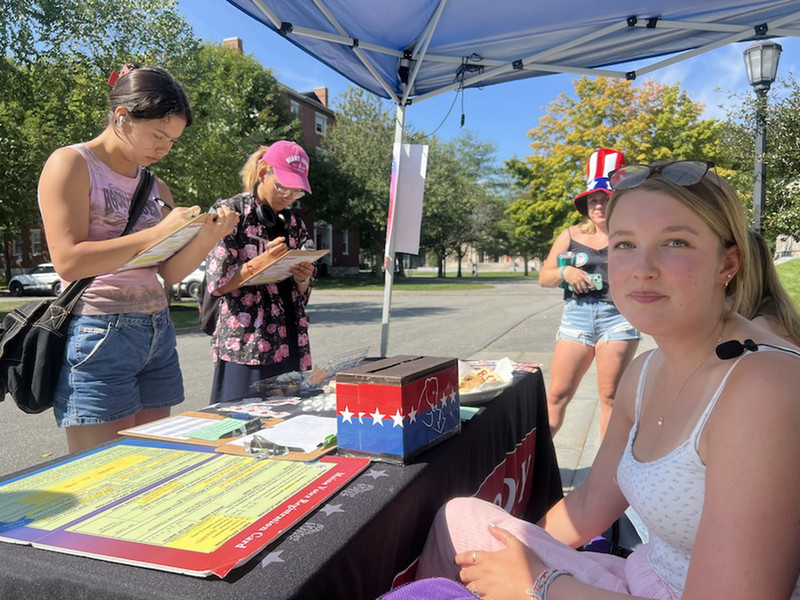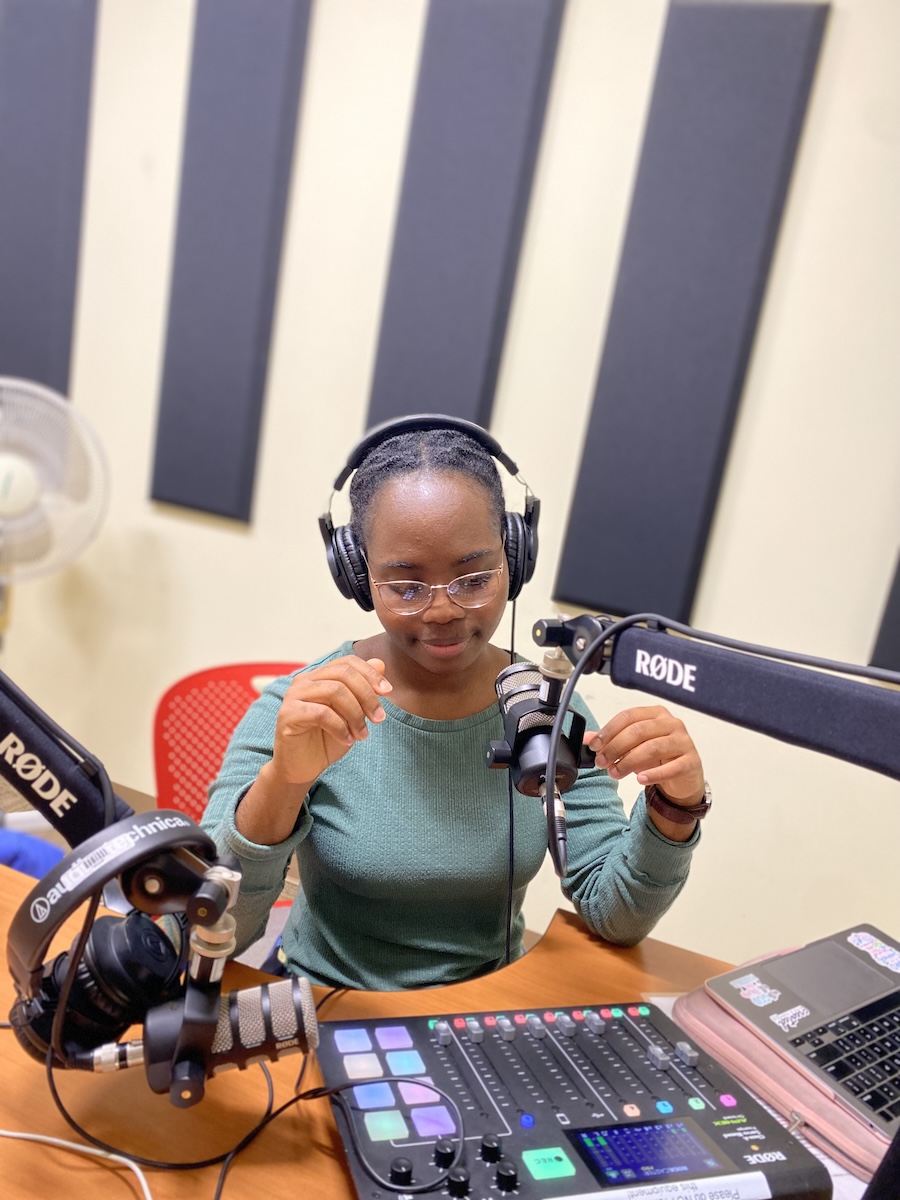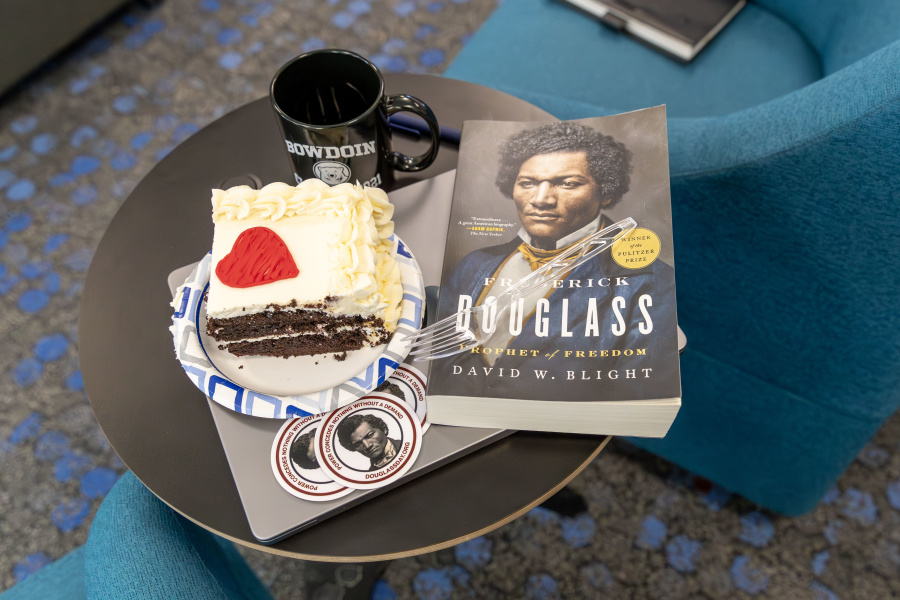Two Students Start Cooking Classes at Local Soup Kitchen
By Rebecca Goldfine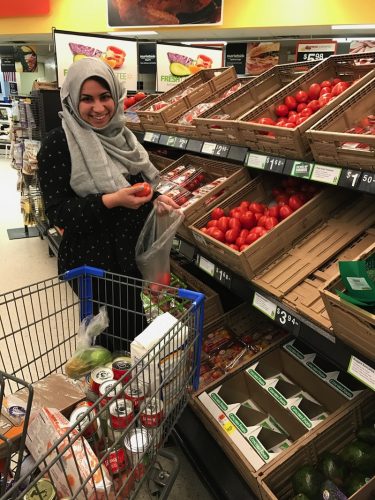
When she was a freshman in a Georgia high school, Salam Nassar ’18 was the first in her family to arrive home after school. Her father was busy running his butcher shop in Atlanta, and her mother was working two teaching jobs. So it fell on her to start meal preparations for her family of seven.
She taught herself how to make Italian dishes, pizza, sushi, Thai. “I just wanted to make sure we were not always eating Arabic food,” she said with a little smile. Her mom, who is from Syria, often cooked the familiar dishes she grew up eating, explained Nassar, who is a biology major and education minor.
Now, in partnership with Miriam El-Baz ’18, Nassar is using her talents to feed people well beyond her family kitchen. The two juniors have started a new club, The Bite for the Better Project, to offer free cooking classes at Brunswick’s Mid Coast Hunger Prevention Program. The nonprofit runs a food pantry and soup kitchen close to the college, and has opened its kitchen up to the students.
While the women say Nassar has the more developed culinary skills, El-Baz — a history and economics double major — is the organizer and logistical mind behind Bite for the Better. Once she had established Bite for the Better as an official Bowdoin club last semester, the club became eligible for a small budget from Bowdoin’s McKeen Center — $200 per cooking class — for groceries.
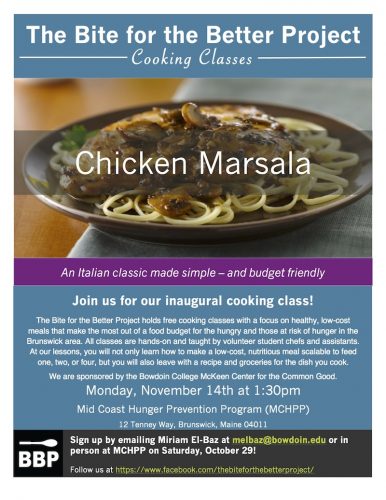
Bite for the Better’s first cooking class: Chicken Marsala
Bite for the Better’s classes are aimed at people who need to stretch their dollars at the grocery store, or for adults who live in group homes but could still benefit from knowing how to cook simple and healthy meals for themselves.
Ethan Minton, program director at Mid Coast Hunger Prevention, said the cooking classes offered by El-Baz and Nassar fill a need at his agency, which strives to prevent hunger and to help people access healthy food. “We don’t have the capacity to offer projects like the one they’ve taken on,” he said. He added that to best support his clients — particularly those who are working one, two jobs and have children — the meals the students teach should be basic and easy.
El-Baz said that when she and Nassar are planning meals to demonstrate in their class, they look for recipes that are low-cost, healthy, and uncomplicated.
For their first class, which took place last fall, El-Baz and Nassar showed their students how to make chicken marsala with an alcohol-free recipe that Nassar created. They bought mushrooms, chicken breast, balsamic vinegar, chicken stock, flour, poultry seasoning, oregano, pasta, and butter — “all inexpensive ingredients,” said El-Baz. “The herbs and spices bump it up a bit so you don’t miss the wine,” Nassar added.
Ten people signed up (although only two students attended their first class, perhaps because of transportation issues, El-Baz said). The next class is scheduled for Feb. 24 at 1 p.m., and El-Baz and Nassar are doing outreach to find more participants, both through Mid Coast Hunger Prevention and Sweetser, a behavioral healthcare organization with an office in Brunswick.
They also welcome any other volunteers from Bowdoin who want to help at the class.
After cooking the meal together, everyone involved sits down to eat it. El-Baz and Nassar hand out pre-packed bags of extra ingredients, plus a copy of the recipe, for the students to take home.
While the cooking class aims to help others, El-Baz said that she’s perhaps gained as much as anyone from the experience of putting her skills to work in the community. “The interactions I’ve had with people have been eye-opening and informative,” she said, enlightening her about the hardships some people experience in Brunswick.
Both El-Baz and Nassar say they have heard some heartbreaking stories. “One person told us, ‘I’ve been cooking over an open fire the last two years’,” El-Baz said. Nassar added, “And another said, ‘I don’t have a kitchen; I live in my car.’”
El-Baz noted, “It has given me the opportunity to look through someone else’s perspective and that, in addition to being able to impact someone’s life even in a small way, has been the most rewarding part.”
